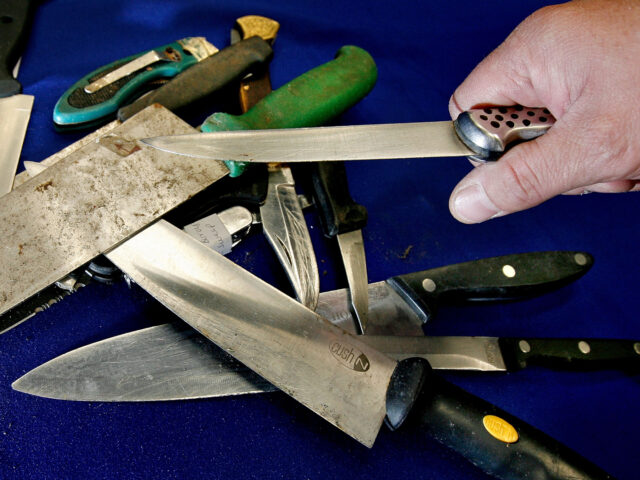London’s Metropolitan Police has reduced the number of pictures of confiscated knives on its social media platforms amid concerns that doing so creates an unnecessary fear of knife crime among the public.
The police force for the British capital has cut the number of pictures of seized knives in half since 2020 according to research conducted by the Green Party in London’s City Hall, which claimed that there were 2,000 images of knives shared online by the Met between July 2020 and August 2021 compared to 1,060 over the following year.
The reduction in posts was not a result of a drop in the number of weapons seized by police, but rather in response to calls to stop publishing such pictures altogether, with academics and left-wing politicians claiming that it fosters what they call ‘unnecessary’; fear among the public of violent crime.
The Met is still sharing far too many images of knives on social media.
Academic studies show these images have a harmful effect on young people. Read my latest report: More harm than good – knife images on police social media
https://t.co/JzZnzt2o9K https://t.co/mgynfZj6vP— Caroline Russell (@CarolineRussell) October 12, 2022
Leading the call is Green Party London Assembly Member Caroline Russell, who said: “The drop in the number of knife images shared by the Met shows that the voices of young people, knife harm reduction charities and academics who are rightly critical of these images may have been heard.
“There is no consistent communications policy across the MPS on sharing knife images, so I am calling for the Met to listen to the evidence that already exists and create a policy to stop sharing these images altogether, as it is clear they are doing more harm than good.”
The Green Party politician was citing research conducted by Sheffield Hallam University published in the Journal of Youth Studies in June, which found that “the use of knife seizure images may provoke negative reactions and create a culture of fear (as exacerbated by the media)”.
The academics went on to say that pictures of seized knives may increase the likelihood that others would carry knives for protection as well as spreading “negative stereotypes and preconceived beliefs about who is likely to carry a knife.”
The report said that police should instead try “understand young people’s perspectives and experiences of knife crime, raise awareness and engagement with relevant partner agencies and community-based activities, and encourage efforts to build trust and cooperation between young people affected by knife crime.”
Police Streets, Not Tweets: ‘Woeful’ UK Police Ruining Public Trust With Wokeness, Says Reporthttps://t.co/H4vXHJNoYw
— Breitbart London (@BreitbartLondon) September 1, 2022
Other police forces, including Thames Valley, have already stopped publishing pictures of knives altogether as of 2019, as a result of the “fear that they are making the public more, not less, worried about knife crime.”
The fear among the public of knife crime may have some justification, however, as analysis from the Telegraph newspaper this month found that in seven police districts in England and Wales, including London, knife crime hit a record high in the year leading up to March of this year.
The report also found that the number of knife crime cases, including assaults, homicides, murders, rapes and threats to kill involving a knife, that were actually solved by the Met Police fell from 24.1 per cent in 2016 to 16.4 per cent over the past year, representing just one in six cases.
Commenting on the issue of publishing pictures of knives on social media, a Met spokesman said: “We welcome the ongoing debate around the sharing of images of knives by police on social media. While some believe it is necessary to show them, others feel it may encourage some to carry knives.
“There are several ongoing academic studies examining the potential impact of the publication of these images. We are waiting for their findings before considering any change in our procedures.”
Weak UK Judges Let 40 Per Cent of Repeat Knife Crime Offenders Avoid Jail https://t.co/wopFBRYCEE
— Breitbart London (@BreitbartLondon) August 28, 2022
Follow Kurt Zindulka on Twitter here @KurtZindulka

COMMENTS
Please let us know if you're having issues with commenting.